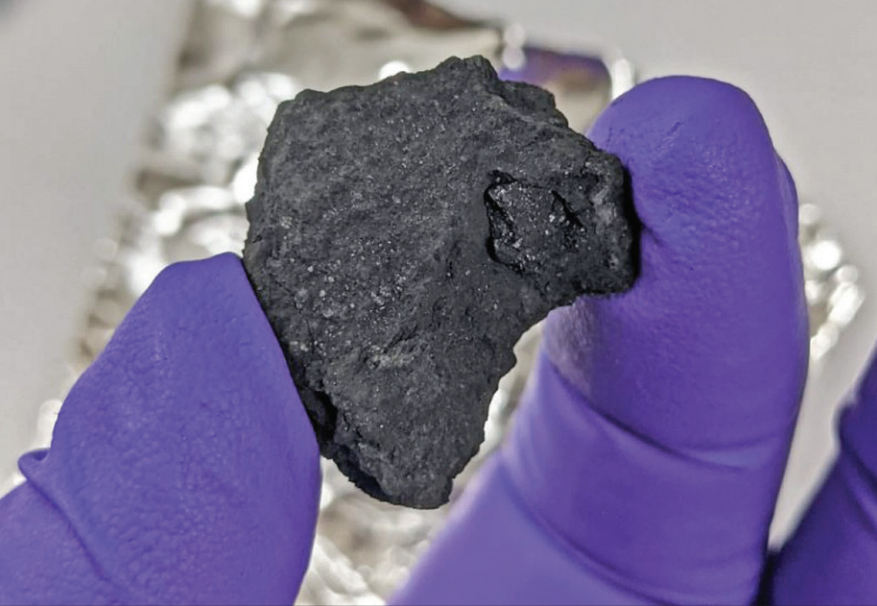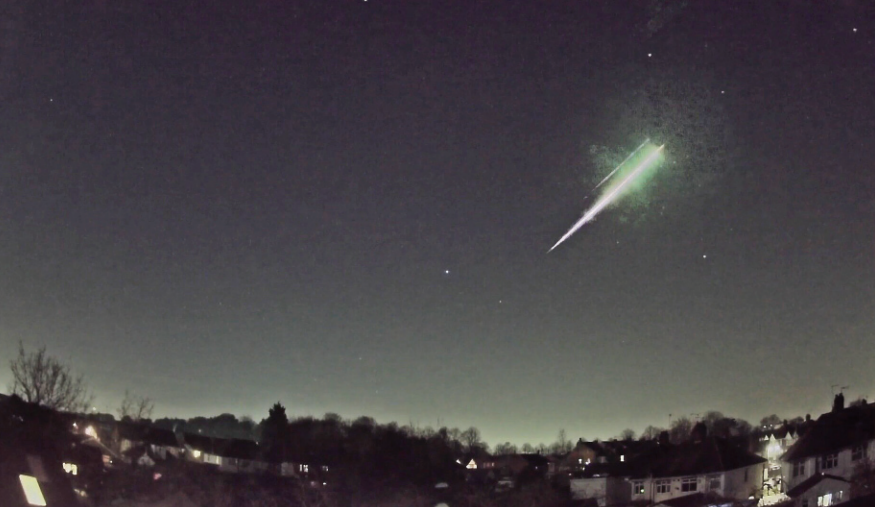Meteorite found on driveway proves rare
By ANGUS McNEICE in London | China Daily Global | Updated: 2021-03-12 09:09

Sample is the first that has fallen and been recovered in the UK in 30 years
Scientists have identified the remnants of an exceedingly rare meteorite that fell onto a family's driveway in Winchcombe, United Kingdom.
The space rock dazzled onlookers as it blazed across UK skies in late February, when an array of special meteorite cameras narrowed the crash-site down to somewhere in the Cotswolds region of Central England.
Meteorite hunters immediately geared up for the search, fully aware that discovery was improbable as it has been three decades since a fallen meteorite has been recovered in the UK. But, as luck would have it, part of the fiery mass made an audible thud when it fell next to the home of Rob and Hannah Wilcock and their daughter Cathryn.
"It was only the next morning when we went out that we saw it on the drive; a bit like a kind of splatter," Hannah Wilcock told the BBC. "And, in all honesty, my original thought was, has someone been driving around the Cotswolds lobbing lumps of coal into people's gardens?"
The family sent out photos of the small pile of black rubble and dust after scientists made appeals in the media.
Experts went to the site and retrieved 300 grams of the meteorite, which is now confirmed to be one of just 51 so-called carbonaceous chondrite meteorites ever witnessed entering the Earth's atmosphere.
"I was in shock when I saw it and immediately knew it was a rare meteorite and a totally unique event," said Richard Greenwood, a meteorite specialist from the Open University who first identified the sample. "It's emotional being the first one to confirm to the people standing in front of you that the thud they heard on their driveway overnight is in fact the real thing."

The rock amounts to a molecular time capsule that originated just under 4.6 billion years ago, which was around the same time as the birth of the solar system, and provides scientists with an unaltered view of the chemistry of our cosmic neighborhood during its formation.
Carbonaceous chondrites also bear carbon-based organic compounds, including amino acids, that are the building blocks of life, giving scientists clues as to how biological processes may have first begun on Earth.
"This is a hugely exciting scientific event, as it is the first time in 30 years that a meteorite sample has fallen and been recovered in the UK," said Katherine Joy, a meteorite expert from the University of Manchester. "Normally, we have to send spacecraft to collect bits of other worlds, but this time one has fallen right into our laps. We look forward to using our laboratories in Manchester and working with our colleagues to investigate how the newly recovered UK meteorite fall can provide insights to how planets in the early solar system were formed."
There are approximately 65,000 known meteorites on Earth. Only 1,206 have been witnessed to fall, and of these only 51 are carbonaceous chondrites, according to Manchester experts.
This is the first known carbonaceous chondrite to have been found in the UK, and the first meteorite to be recovered in the UK since 1991 when a 767-gram space rock landed in a man's garden in the village of Glatton, Cambridgeshire.
























